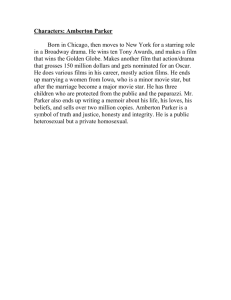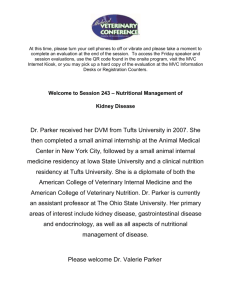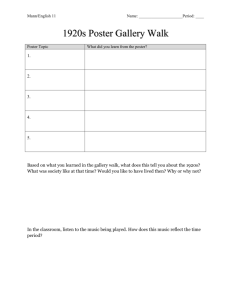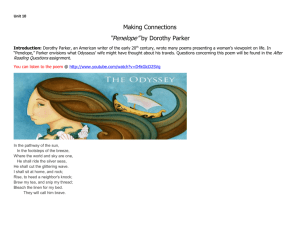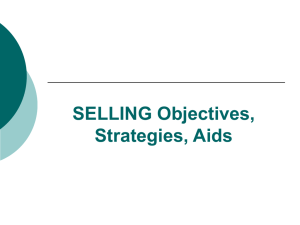impact of the College of Agriculture Issue
advertisement
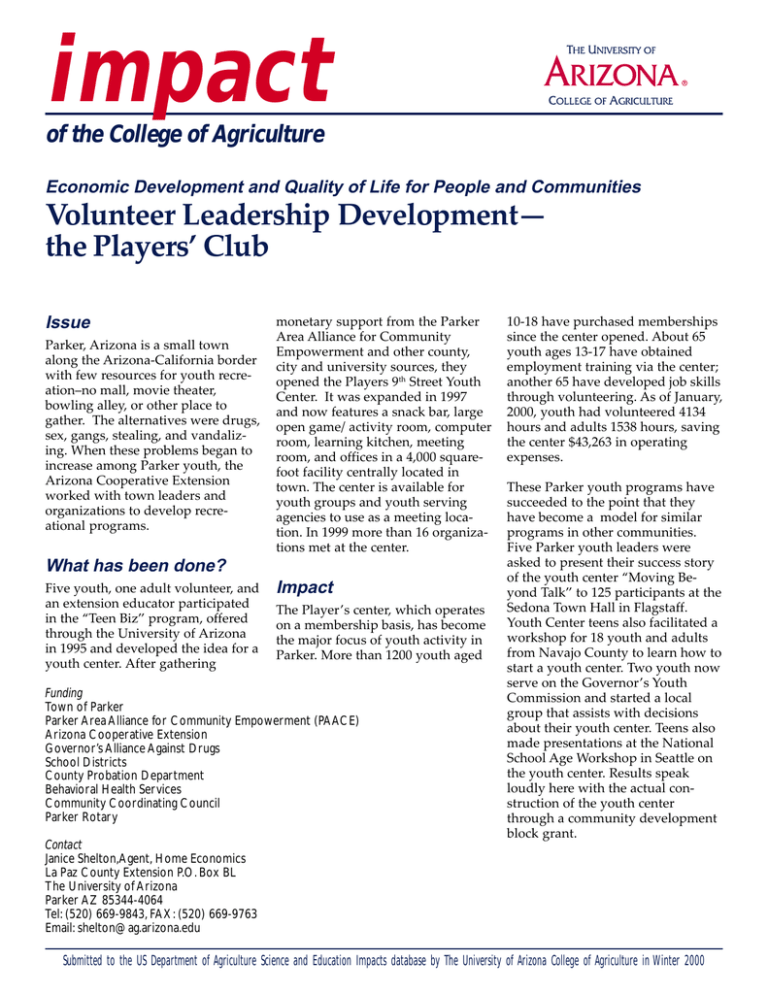
impact of the College of Agriculture Economic Development and Quality of Life for People and Communities Volunteer Leadership Development— the Players’ Club Issue Parker, Arizona is a small town along the Arizona-California border with few resources for youth recreation–no mall, movie theater, bowling alley, or other place to gather. The alternatives were drugs, sex, gangs, stealing, and vandalizing. When these problems began to increase among Parker youth, the Arizona Cooperative Extension worked with town leaders and organizations to develop recreational programs. monetary support from the Parker Area Alliance for Community Empowerment and other county, city and university sources, they opened the Players 9th Street Youth Center. It was expanded in 1997 and now features a snack bar, large open game/activity room, computer room, learning kitchen, meeting room, and offices in a 4,000 squarefoot facility centrally located in town. The center is available for youth groups and youth serving agencies to use as a meeting location. In 1999 more than 16 organizations met at the center. What has been done? Five youth, one adult volunteer, and an extension educator participated in the “Teen Biz” program, offered through the University of Arizona in 1995 and developed the idea for a youth center. After gathering Impact The Player’s center, which operates on a membership basis, has become the major focus of youth activity in Parker. More than 1200 youth aged Funding Town of Parker Parker Area Alliance for Community Empowerment (PAACE) Arizona Cooperative Extension Governor’s Alliance Against Drugs School Districts County Probation Department Behavioral Health Services Community Coordinating Council Parker Rotary Contact Janice Shelton,Agent, Home Economics La Paz County Extension P.O. Box BL The University of Arizona Parker AZ 85344-4064 Tel: (520) 669-9843, FAX: (520) 669-9763 Email: shelton@ag.arizona.edu 10-18 have purchased memberships since the center opened. About 65 youth ages 13-17 have obtained employment training via the center; another 65 have developed job skills through volunteering. As of January, 2000, youth had volunteered 4134 hours and adults 1538 hours, saving the center $43,263 in operating expenses. These Parker youth programs have succeeded to the point that they have become a model for similar programs in other communities. Five Parker youth leaders were asked to present their success story of the youth center “Moving Beyond Talk” to 125 participants at the Sedona Town Hall in Flagstaff. Youth Center teens also facilitated a workshop for 18 youth and adults from Navajo County to learn how to start a youth center. Two youth now serve on the Governor’s Youth Commission and started a local group that assists with decisions about their youth center. Teens also made presentations at the National School Age Workshop in Seattle on the youth center. Results speak loudly here with the actual construction of the youth center through a community development block grant. Submitted to the US Department of Agriculture Science and Education Impacts database by The University of Arizona College of Agriculture in Winter 2000

